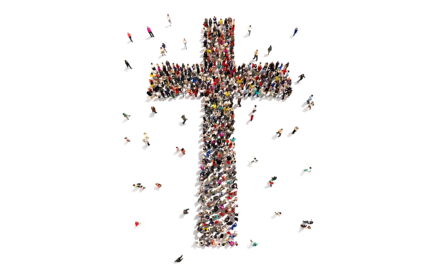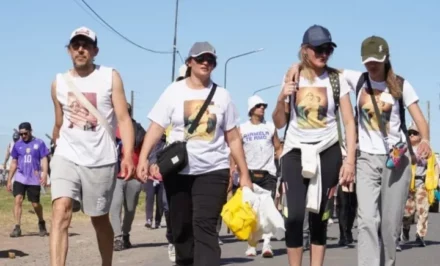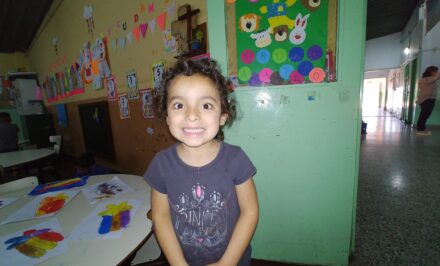 mda. 1914. The Schoenstatt Family all over the world spontaneously connects this year with Schoenstatt’s foundation. It took place at the beginning of World War I. “A child of war” Fr Kentenich used to call it. A child of are really dreadful and cruel war, a war that brutally ended the lives of so many young people, including the young men who had surrendered themselves completely to the Mother of God so that the poor and unadorned chapel in the narrow Schoenstatt valley (where the GPS system still fails today, because it can’t find a signal) might help to renew the world and society through a covenant with the Blessed Mother, the Mother of all peoples. It was a war that also became the cradle of a Schoenstatt that went out into the trenches and proved itself on the battlefields. Its members helped their comrades in need and in the faith, they proved by their deeds, that they were motivated by real love. It was a Schoenstatt that found the strength at its foundation in the events of war to offer an answer to people in need. It lived what Pope Francis is now recommending, that we go out” onto the streets” to give people hope, not in a utopia, but through practical deeds and in projects to re-evangelise the people wherever they are, even if it is on the “periphery” of society, because it is just there they are needed despite all the risks and dangers. That is why it is also and especially a message for Schoenstatt what Pope Francis said today on 13 September, when he visited the war graves in Redipuglia, where he remembered all the fallen of World War I and the victims of today’s wars.
mda. 1914. The Schoenstatt Family all over the world spontaneously connects this year with Schoenstatt’s foundation. It took place at the beginning of World War I. “A child of war” Fr Kentenich used to call it. A child of are really dreadful and cruel war, a war that brutally ended the lives of so many young people, including the young men who had surrendered themselves completely to the Mother of God so that the poor and unadorned chapel in the narrow Schoenstatt valley (where the GPS system still fails today, because it can’t find a signal) might help to renew the world and society through a covenant with the Blessed Mother, the Mother of all peoples. It was a war that also became the cradle of a Schoenstatt that went out into the trenches and proved itself on the battlefields. Its members helped their comrades in need and in the faith, they proved by their deeds, that they were motivated by real love. It was a Schoenstatt that found the strength at its foundation in the events of war to offer an answer to people in need. It lived what Pope Francis is now recommending, that we go out” onto the streets” to give people hope, not in a utopia, but through practical deeds and in projects to re-evangelise the people wherever they are, even if it is on the “periphery” of society, because it is just there they are needed despite all the risks and dangers. That is why it is also and especially a message for Schoenstatt what Pope Francis said today on 13 September, when he visited the war graves in Redipuglia, where he remembered all the fallen of World War I and the victims of today’s wars.
Complete text of Pope Francis`homily
After experiencing the beauty of travelling throughout this region, where men and women work and raise their families, where children play and the elderly dream… I now find myself here, in this place, able to say only one thing: War is madness.
Whereas God carries forward the work of creation, and we men and women are called to participate in his work, war destroys. It also ruins the most beautiful work of his hands: human beings. War ruins everything, even the bonds between brothers. War is irrational; its only plan is to bring destruction: it seeks to grow by destroying.
Greed, intolerance, the lust for power…. These motives underlie the decision to go to war, and they are too often justified by an ideology; but first there is a distorted passion or impulse.
Ideology is presented as a justification and when there is no ideology, there is the response of Cain: “What does it matter to me? Am I my brother’s keeper?” (cf. Gen 4:9). War does not look directly at anyone, be they elderly, children, mothers, fathers…. “What does it matter to me?”
Above the entrance to this cemetery, there hangs in the air those ironic words of war, “What does it matter to me?” Each one of the dead buried here had their own plans, their own dreams… but their lives were cut short. Humanity said, “What does it matter to me?”
Even today, after the second failure of another world war, perhaps one can speak of a third war, one fought piecemeal, with crimes, massacres, destruction… In all honesty, the front page of newspapers ought to carry the headline, “What does it matter to me?” Cain would say, “Am I my brother’s keeper?”
This attitude is the exact opposite of what Jesus asks of us in the Gospel. We have heard: he is in the least of his brothers; he, the King, the Judge of the world, he is the one who hungers, who thirsts, he is the stranger, the one who is sick, the prisoner… The one who cares for his brother or sister enters into the joy of the Lord; the one who does not do so, however, who by his omissions says, “What does it matter to me?”, remains excluded.
Here lie many victims. Today, we remember them. There are tears, there is sadness, there is pain. From this place we remember all the victims of every war.
Today, too, the victims are many… How is this possible? It is so because in today’s world, behind the scenes, there are interests, geopolitical strategies, lust for money and power, and there is the manufacture and sale of arms, which seem to be so important!
And these plotters of terror, these schemers of conflicts, just like arms dealers, have engraved in their hearts, “What does it matter to me?” It is the task of the wise to recognize errors, to feel pain, to repent, to beg for pardon and to cry.
With this “What does it matter to me?” in their hearts, the merchants of war perhaps have made a great deal of money, but their corrupted hearts have lost the capacity to cry. That “What does it matter to me?” prevents the tears. Cain did not cry. He was unable to cry. The shadow of Cain hangs over us today in this cemetery. It is seen here. It is seen from 1914 right up to our own time. It is seen even in the present.
With the heart of a son, a brother, a father, I ask each of you, indeed for all of us, to have a conversion of heart: to move on from “What does it matter to me?”, to tears: for each one of the fallen of this “senseless massacre”, for all the victims of the mindless wars, in every age.
Humanity needs to weep, and this is the time to weep.














